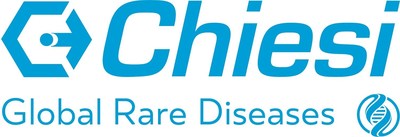Protalix BioTherapeutics and Chiesi Global Rare Diseases Receive Complete Response Letter for Pegunigalsidase Alfa from FDA
Rhea-AI Summary
Protalix BioTherapeutics (NYSE American: PLX) and Chiesi Global Rare Diseases received a Complete Response Letter (CRL) from the FDA regarding the Biologics License Application for pegunigalsidase alfa (PRX-102) intended for treating Fabry disease. The companies are evaluating the regulatory feedback to outline steps for potential approval. Despite the setback, executives express confidence in their clinical data and commitment to advancing the treatment. The PRX-102 BLA was granted Priority Review by the FDA, emphasizing its potential significance in addressing unmet medical needs in Fabry patients.
Positive
- The FDA granted Priority Review for PRX-102, indicating potential significance in treating Fabry disease.
- Protalix remains committed to ongoing clinical trials, including the Phase III BRIDGE and BALANCE studies.
Negative
- The issuance of a Complete Response Letter indicates regulatory challenges in obtaining approval for PRX-102.
- The need to address deficiencies cited in the CRL could delay the approval process.
News Market Reaction 1 Alert
On the day this news was published, PLX declined 4.74%, reflecting a moderate negative market reaction.
Data tracked by StockTitan Argus on the day of publication.
CARMIEL, Israel and BOSTON, April 28, 2021 /PRNewswire/ -- Protalix BioTherapeutics, Inc. (NYSE American:PLX) (TASE:PLX), a biopharmaceutical company focused on the development, production and commercialization of recombinant therapeutic proteins produced by its proprietary ProCellEx® plant cell-based protein expression system, and Chiesi Global Rare Diseases, a business unit of Chiesi Farmaceutici S.p.A., an international research-focused healthcare Group (Chiesi Group), today announced that they received a Complete Response Letter (CRL) from the U.S. Food and Drug Administration (FDA) regarding the Biologics License Application (BLA) seeking accelerated approval of pegunigalsidase alfa (PRX‑102) for the proposed treatment of adult patients with Fabry disease.

Protalix and Chiesi are studying the CRL to assess the most expedient regulatory approach to reach an understanding with the FDA on additional actions required to obtain approval of PRX‑102, and will provide an update soon.
"While disappointing, we remain confident in the strength of our data and in the depth of our program," said Dror Bashan, Protalix's President and Chief Executive Officer. "We remain committed to the program and to working with the FDA and Chiesi toward the approval of PRX‑102."
"Based on extensive clinical data including results from the Phase III BRIDGE clinical trial of PRX-102 for the proposed treatment of Fabry disease, we continue to feel strongly that PRX‑102 is an important option for the treatment of Fabry disease in adult patients, and we are continuing with our efforts to make this therapy available to patients," said Giacomo Chiesi, Head of Chiesi Global Rare Diseases. "We thank the patients and clinicians participating in our completed and ongoing clinical studies evaluating PRX-102. We are continuing to coordinate closely with the FDA to address and quickly resolve the deficiencies contained in the CRL."
Fabry disease is an X-linked inherited disease caused by deficient activity of the lysosomal α‑Galactosidase‑A enzyme, resulting in progressive accumulation of abnormal deposits of a fatty substance called globotriaosylceramide (Gb3) in the blood and blood vessel walls throughout the human body. Symptoms of Gb3 deposition range from episodes of pain, gastrointestinal (GI) symptoms, fatigue, angiokeratoma, and abnormal sweating to serious complications including cardiovascular, renal, and cerebrovascular events.
The PRX-102 BLA was initially submitted under the accelerated approval pathway and was granted Priority Review by the FDA. Priority Review is granted to therapies that the FDA determines have the potential to provide significant improvements in the treatment, diagnosis or prevention of serious conditions. The BLA submission for PRX‑102 included a comprehensive set of preclinical, clinical, and manufacturing data compiled from the completed Phase I/II clinical trial of PRX‑102, including the related extension study succeeding the Phase I/II clinical trial, interim clinical data from the Phase III BRIDGE switch-over study and safety data from Protalix's on-going clinical studies of PRX‑102 in patients receiving 1 mg/kg every other week.
We remain committed to the Phase III clinical program which is progressing, and patients continue to receive PRX‑102 treatment in the ongoing BALANCE study sponsored by Protalix and various long-term extension studies. In addition, Chiesi provides access to pegunigalsidase alfa through its Expanded Access Program (EAP) for Fabry disease patients in the United States who cannot be adequately treated with currently available FDA-approved drugs. The EAP is open to patients with a clinical diagnosis of Fabry disease who, in the opinion of the treating physician, have no comparable or satisfactory alternative treatment options with currently available FDA-approved therapies for Fabry disease. Other eligibility criteria apply. The Expanded Access Program is listed on ClinicalTrials.gov Identifier: NCT04552691 (https://clinicaltrials.gov/ct2/show/NCT04552691). Additional information on Chiesi's Expanded Access policy is available at https://www.chiesiusa.com/sustainability/expanded-access-programs/. Treating physicians must submit requests on behalf of their patients for consideration via the EAP request portal at https://chiesi.versaic.com. As originally planned, Chiesi will continue to coordinate with the European Medicines Agency (EMA) to file for regulatory approval of PRX‑102 in the European Union this year.
About Pegunigalsidase Alfa (PRX‑102)
Pegunigalsidase alfa (PRX‑102) is an investigational, plant cell culture-expressed, and chemically modified stabilized version of the recombinant α-Galactosidase-A enzyme. Protein sub-units are covalently bound via chemical cross-linking using short PEG moieties, resulting in a molecule with unique pharmacokinetic parameters. In clinical studies, PRX‑102 has been observed to have a circulatory half-life of approximately 80 hours. Protalix designed PRX‑102 to potentially address the continued unmet clinical need in Fabry patients.
About Protalix BioTherapeutics, Inc.
Protalix is a biopharmaceutical company focused on the development and commercialization of recombinant therapeutic proteins expressed through its proprietary plant cell-based expression system, ProCellEx®. Protalix was the first company to gain FDA approval of a protein produced through plant cell-based in suspension expression system. Protalix's unique expression system represents a new method for developing recombinant proteins in an industrial-scale manner.
Protalix's first product manufactured by ProCellEx, taliglucerase alfa, was approved by the FDA in May 2012 and, subsequently, by the regulatory authorities of other countries. Protalix has licensed to Pfizer Inc. the worldwide development and commercialization rights for taliglucerase alfa, excluding Brazil, where Protalix retains full rights.
Protalix's development pipeline consists of proprietary versions of recombinant therapeutic proteins that target established pharmaceutical markets, including the following product candidates: pegunigalsidase alfa, a modified stabilized version of the recombinant human α-‑Galactosidase-‑A protein for the treatment of Fabry disease; alidornase alfa or PRX-110, for the treatment of various human respiratory diseases or conditions; PRX-115, a plant cell-expressed recombinant PEGylated uricase for the treatment of refractory gout; PRX-119, a plant cell-expressed long action DNase I for the treatment of NETs-related diseases; and others. Protalix has partnered with Chiesi Farmaceutici S.p.A., both in the United States and outside the United States, for the development and commercialization of pegunigalsidase alfa, and with SarcoMed USA, Inc. for the worldwide development and commercialization of PRX-110 for use in the treatment of any human respiratory disease or condition including, but not limited to, sarcoidosis, pulmonary fibrosis, and other related diseases via inhaled delivery.
About Chiesi Global Rare Diseases
Chiesi Global Rare Diseases is a business unit of the Chiesi Group established in February 2020 and focused on research and development of treatments for rare and ultra-rare disorders. The Global Rare Diseases unit works in collaboration with Chiesi Group to harness the full resources and capabilities of our global network to bring innovative new treatment options to people living with rare diseases, many of whom have limited or no treatments available. The unit is also a dedicated partner with global leaders in patient advocacy, research and patient care. For more information visit www.chiesiglobalrarediseases.com.
About Chiesi Group
Based in Parma, Italy, Chiesi Farmaceutici is an international research-focused healthcare group with 85 years of experience in the pharmaceutical industry and a global presence in 29 countries. Chiesi researches, develops, and markets innovative drugs in the respiratory therapeutics, specialist medicine, and rare disease areas. Its R&D organization is headquartered in Parma (Italy), and is integrated with R&D groups in France, the USA, the UK, and Sweden to advance Chiesi's pre-clinical, clinical, and registration programs. Chiesi employs nearly 6,000 people.
Chiesi Group is a certified Benefit corporation. For more information, please visit www.chiesi.com.
Protalix BioTherapeutics Forward-Looking Statements Disclaimer
To the extent that statements in this press release are not strictly historical, all such statements are forward-looking, and are made pursuant to the safe-harbor provisions of the Private Securities Litigation Reform Act of 1995. The terms "expect," "anticipate," "believe," "estimate," "project," "may," "plan," "will," "would," "should" and "intend," and other words or phrases of similar import are intended to identify forward-looking statements. These forward-looking statements are subject to known and unknown risks and uncertainties that may cause actual future experience and results to differ materially from the statements made. These statements are based on our current beliefs and expectations as to such future outcomes. Drug discovery and development involve a high degree of risk and the final results of a clinical trial may be different than the preliminary findings for the clinical trial. Factors that might cause material differences include, among others: Risks related to the timing and progress of the preparation of an updated BLA addressing the complete response letter; Risks related to the timing, progress and likelihood of final approval by the FDA of a resubmitted BLA for PRX‑102 and, if approved, whether the use of PRX-102 will be commercially successful; failure or delay in the commencement or completion of our preclinical studies and clinical trials, which may be caused by several factors, including: slower than expected rates of patient recruitment; unforeseen safety issues; determination of dosing issues; lack of effectiveness during clinical trials; inability or unwillingness of medical investigators and institutional review boards to follow our clinical protocols; and inability to monitor patients adequately during or after treatment; risks associated with the novel coronavirus disease, or COVID-19, outbreak, which may adversely impact our business, preclinical studies and clinical trials; risks related to any transactions we may effect in the public or private equity markets to raise capital to finance future research and development activities, general and administrative expenses and working capital; the risk that the results of the clinical trials of our product candidates will not support the applicable claims of safety or efficacy, or that our product candidates will not have the desired effects or will be associated with undesirable side effects or other unexpected characteristics; risks related to our ability to maintain and manage our relationship with our collaborators, distributors or partners; risks related to the amount and sufficiency of our cash and cash equivalents; risks relating to our ability to make scheduled payments of the principal of, to pay interest on or to refinance our outstanding notes or any other indebtedness; our dependence on performance by third party providers of services and supplies, including without limitation, clinical trial services; delays in our preparation and filing of applications for regulatory approval; delays in the approval or potential rejection of any applications we file with the FDA, EMA or other health regulatory authorities, and other risks relating to the review process; the inherent risks and uncertainties in developing drug platforms and products of the type we are developing; the impact of development of competing therapies and/or technologies by other companies and institutions; potential product liability risks, and risks of securing adequate levels of product liability and other necessary insurance coverage; and other factors described in our filings with the U.S. Securities and Exchange Commission. The statements in this press release are valid only as of the date hereof and we disclaim any obligation to update this information, except as may be required by law.
Protalix BioTherapeutics Media Contact
Chuck Padala, Managing Director
LifeSci Advisors
+1-646-627-8390
chuck@lifesciadvisors.com
Chiesi Global Rare Diseases Media Contact
Jenna Urban
Berry & Company Public Relations
1-212-253-8881
jurban@berrypr.com

![]() View original content:http://www.prnewswire.com/news-releases/protalix-biotherapeutics-and-chiesi-global-rare-diseases-receive-complete-response-letter-for-pegunigalsidase-alfa-from-fda-301278658.html
View original content:http://www.prnewswire.com/news-releases/protalix-biotherapeutics-and-chiesi-global-rare-diseases-receive-complete-response-letter-for-pegunigalsidase-alfa-from-fda-301278658.html
SOURCE Protalix BioTherapeutics, Inc.; Chiesi








